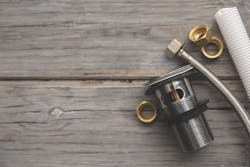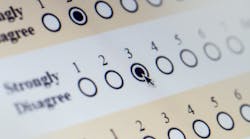Kathleen Fultz is global regulatory and government affairs manager for the Water Quality Association. Fultz can be reached at [email protected].
Attention to evolving regulations helps anticipate new threats and opportunities. One such type of regulation for the drinking water treatment and filtration industry in the U.S. is local plumbing codes. A general code definition of plumbing systems often includes water-treating or water-using equipment in connection with public or private water supply systems. Plumbing code changes can affect product compliance and certification requirements as well as installations. To add a layer of complexity, there is no national U.S. plumbing code. This empowers the states to enforce their own codes with variations in definitions and requirements, or states can leave it to local municipalities.
Understanding Model Codes
There are two main code development organizations, International Code Council (ICC) and the International Association of Plumbing and Mechanical Officials (IAPMO), who develop and publish rival model codes then work to get states to adopt them. ICC oversees the International Plumbing Code (IPC), and IAPMO is in charge of the Uniform Plumbing Code (UPC). Both codes follow an adoption cycle and ask for public comments. Without state or local government adoption, these model codes are not enforceable.
Focusing specifically on the model codes for a moment, they both cite drinking water treatment unit standards, NSF/ANSI Standards 42, 44, 53, 58, 60, 61, etc., for product certification. In recent code cycles, the model codes have explained how products must comply with referenced standards.
The 2018 version of the UPC, under Chapter 3 Section 301.2, states: “Pipe, pipe fittings, traps, fixtures, materials, and devices used in a plumbing system shall be listed (third-party certified) by a listing agency (accredited conformity assessment body) as complying with the approved applicable recognized standards referenced in this code, and shall be free from defects.”
The 2018 version of the IPC, under Chapter 3 Section 303.4, explains: “Plumbing products and materials required by the code to be in compliance with a referenced standard shall be listed by a third-party certification agency as complying with the referenced standards.”
Each State is Unique
Each state establishes its own plumbing code adoption cycle and process. For example, few states have yet to adopt the 2018 version of either model code. However, both the IPC and UPC are about to publish their 2021 editions. When states choose to adopt a model code, they can incorporate amendments, making the code unique to the state. This is another opportunity to vocalize comments on code provisions.
Outside of plumbing codes, the drinking water treatment and filtration industry also is complying with licensing requirements for maintenance and installation. In addition, state product registration programs in California, Iowa, and Wisconsin are regulated outside of the state’s plumbing code. California’s registration program, operated by the State Water Resources Control Board, is under the Health and Safety Code. Similarly, Iowa’s program is under the State Public Health Department Code, and Wisconsin’s is found in the Safety and Professional Services Code.
To support the industry, the Water Quality Association maintains an online regulatory database to quickly locate state codes and regulations to assess possible impacts.



